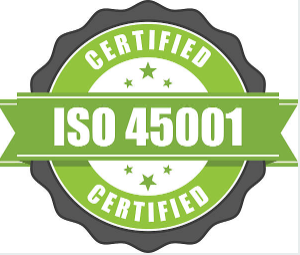education

May 29,2025 • 3 min read
ISO 45001 Lead Auditor Training | ISO 45001 Lead Auditor Course: Become a Certified Safety Management Expert

In an era where workplace safety and employee wellbeing are vital to business success, organizations must go beyond legal compliance and adopt global standards for occupational health and safety. ISO 45001, the international standard for Occupational Health and Safety Management Systems (OHSMS), provides a comprehensive framework to proactively improve workplace safety, reduce risks, and enhance overall well-being.
To ensure effective implementation and maintenance of ISO 45001, skilled auditors are essential. This is where the ISO 45001 Lead Auditor Training or ISO 45001 Lead Auditor Course comes into play. This article offers an in-depth guide on what this course involves, its importance, who should take it, and how it empowers professionals to lead safety audits with confidence and competence.
What Is ISO 45001?
ISO 45001:2018 is the first global standard developed by ISO for occupational health and safety management systems. It replaces OHSAS 18001 and is designed to help organizations:
-
Prevent work-related injuries and ill health
-
Promote safe and healthy workplaces
-
Comply with legal and regulatory requirements
-
Foster a culture of continual improvement in health and safety
ISO 45001 adopts a risk-based approach and follows the Annex SL structure, aligning it with other management system standards such as ISO 9001 and ISO 14001, making integration across disciplines more efficient.
What is ISO 45001 Lead Auditor Training?
The ISO 45001 Lead Auditor Training is a comprehensive program designed to equip participants with the skills and knowledge required to plan, conduct, report, and follow up on first-party (internal), second-party (supplier), and third-party (external) audits of occupational health and safety management systems against ISO 45001.
This course not only teaches auditing techniques in line with ISO 19011:2018 (auditing guidelines) but also prepares professionals for certification audits under ISO/IEC 17021—the standard governing third-party certification bodies.
Why ISO 45001 Lead Auditor Course Is Important
1. Legal Compliance and Risk Management
Organizations face increasing pressure to comply with health and safety regulations. A certified lead auditor ensures compliance through effective audits, identifying gaps and mitigating risks before incidents occur.
2. Certification and Accreditation
Companies seeking ISO 45001 certification must undergo regular audits. A certified lead auditor can lead internal audits and prepare the organization for third-party certification audits.
3. Improved Workplace Safety
Audits led by trained professionals contribute to reduced incidents, fewer lost workdays, and a safer, more engaged workforce.
4. Professional Growth
For individuals, becoming a certified ISO 45001 lead auditor opens doors to high-demand roles in EHS (Environmental Health and Safety), compliance, auditing, and consulting.
Who Should Attend ISO 45001 Lead Auditor Training?
This course is ideal for:
-
EHS Managers and Officers
-
Occupational Health and Safety Practitioners
-
Quality and Compliance Managers
-
Internal Auditors
-
ISO 45001 Implementation Team Members
-
Risk Managers
-
Independent Consultants and Auditors
-
HR and Operations Leaders
While some prior knowledge of ISO management systems or auditing principles is helpful, most training providers offer pre-course materials to help learners prepare.
james smith Details
User Profile
- Full name
- james smith
- Email address
- jamsmiith2201@gmail.com
- Join Date
- 2025-05-29
- State
- City
- Pincode
- Address
- Follow us on Facebook
- Follow us on Twitter
- Website Name
- Bio